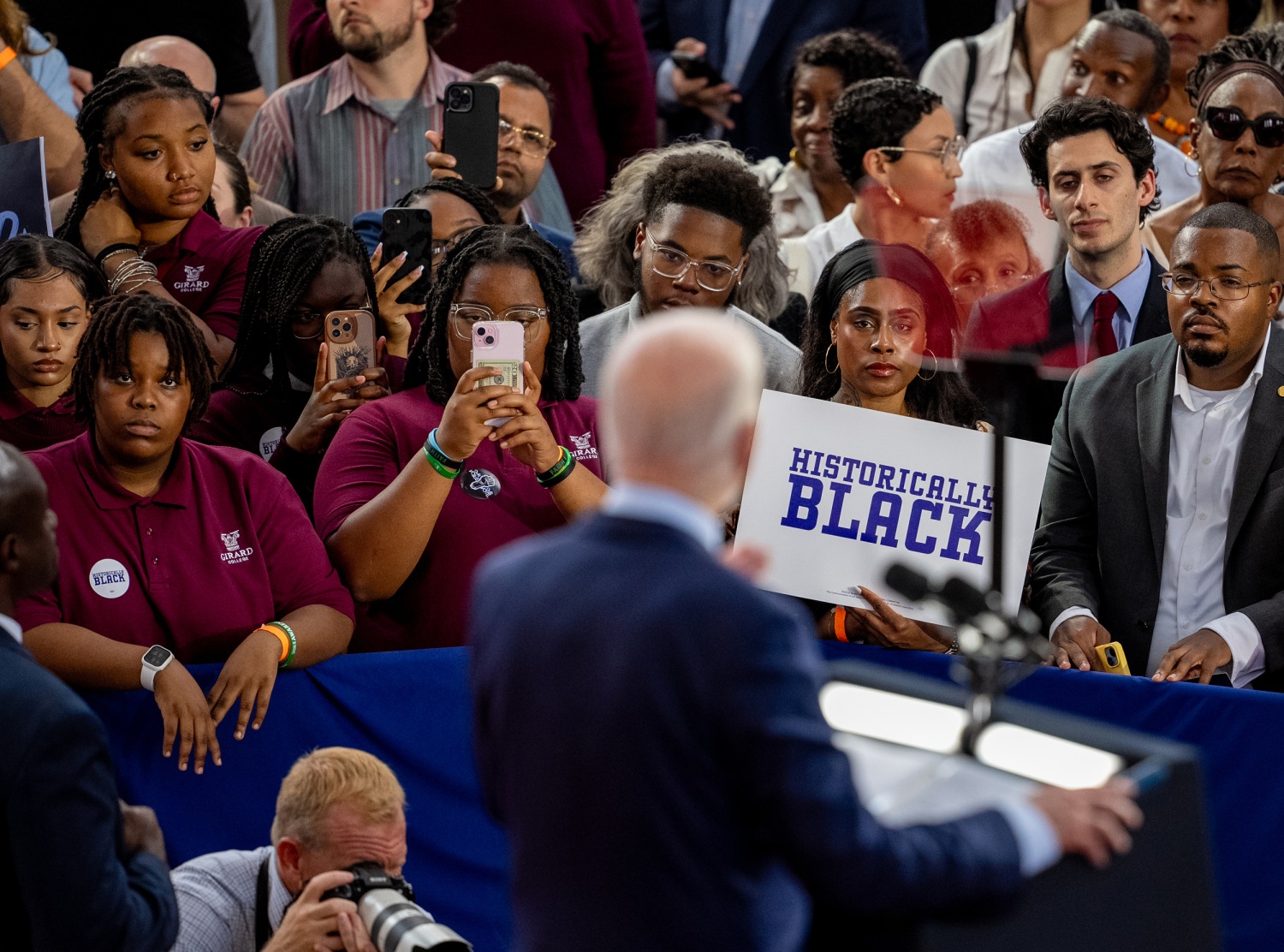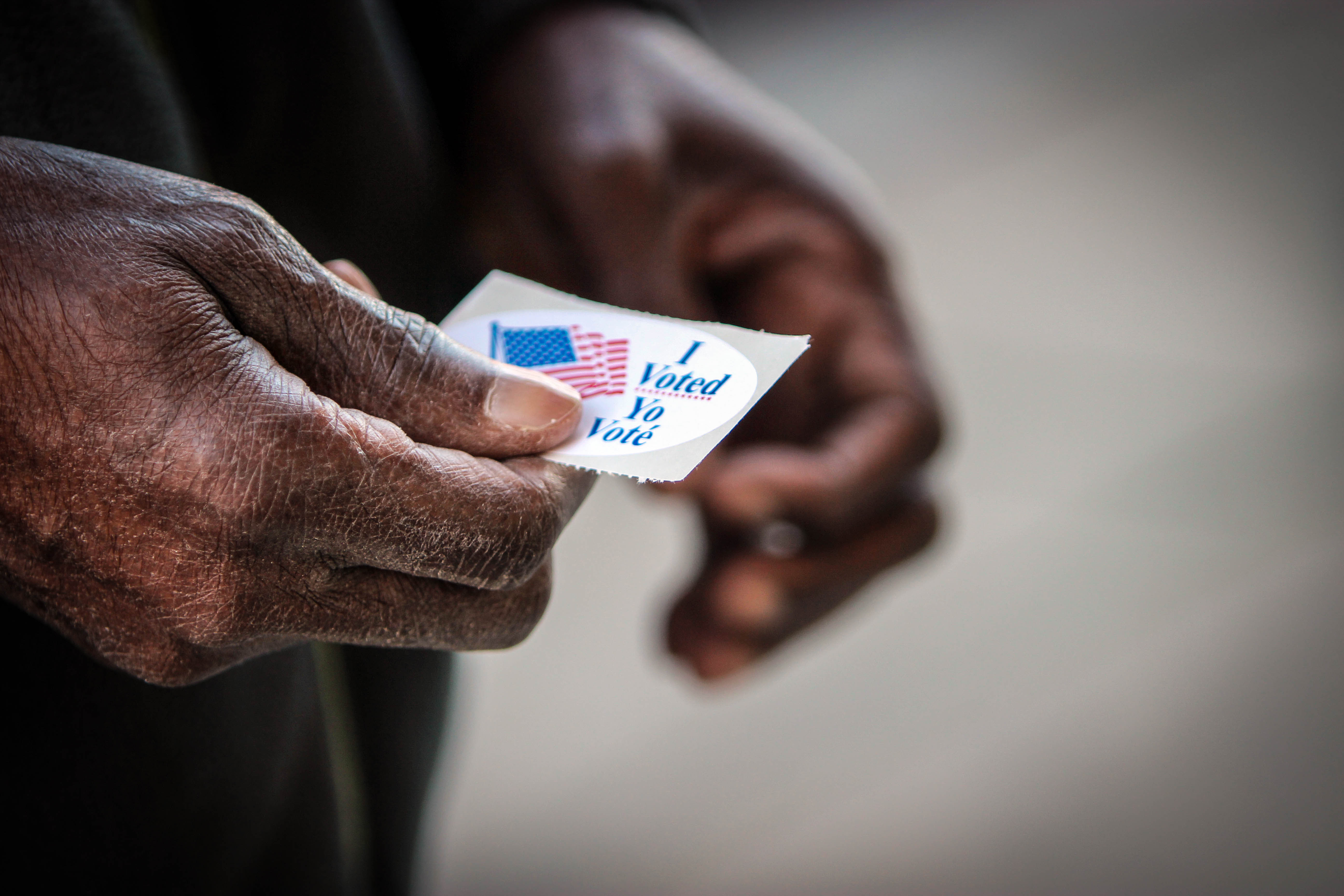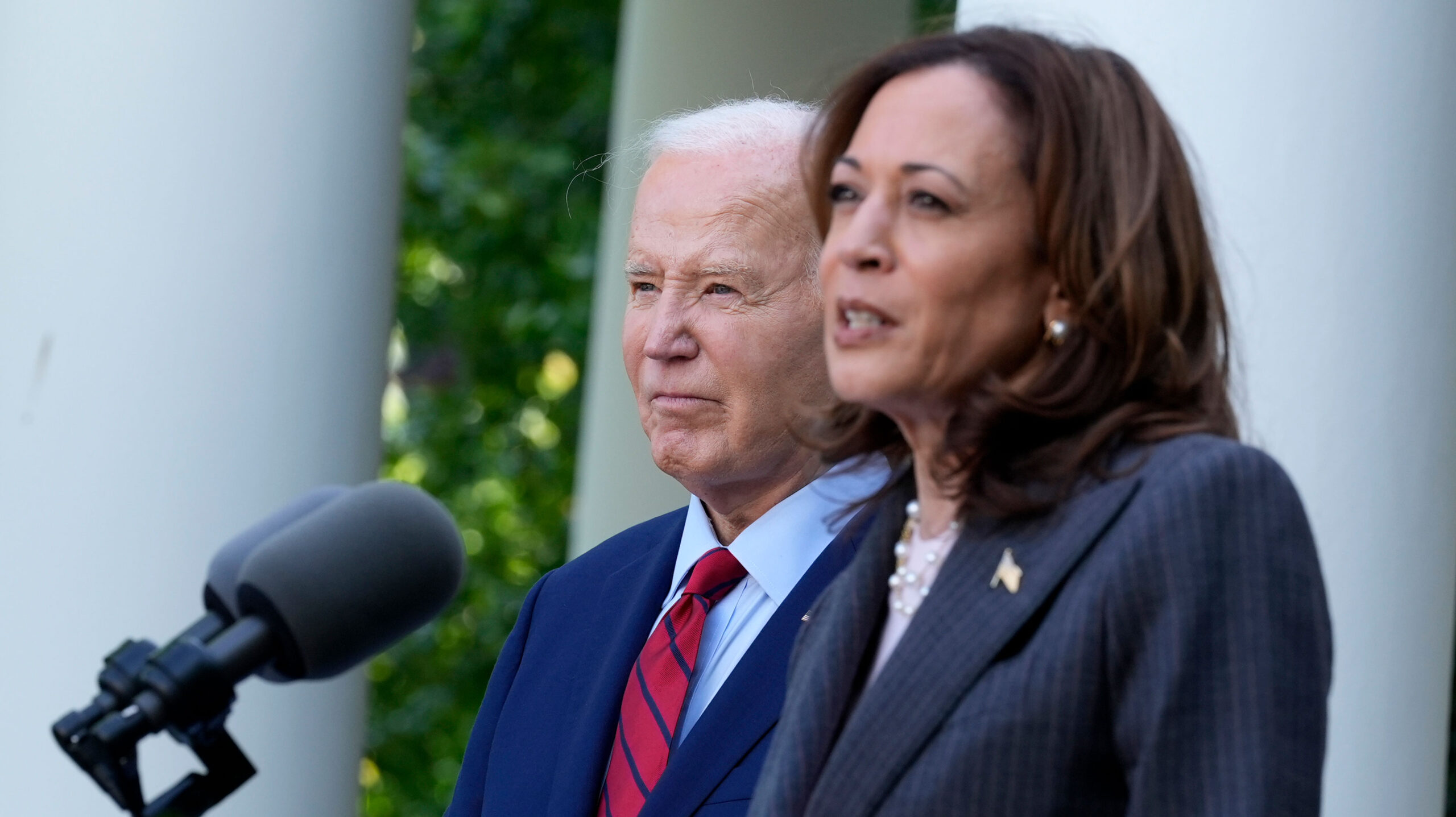- BlackVoter.Org
- Posts
- BLACKVOTER.ORG #104
BLACKVOTER.ORG #104
Empowering Awareness: Stay Grounded With Blackvoter.org Newsletter!Empowering voices, driving change. 🗳️ Advocate for justice, equity, and representation at BlackVoter.org. Join us as we harness the power of the ballot to shape a future that reflects our values and aspirations. #BlackVoter #EmpowerChange Publish Time



Abdul 'Duke' Fakir, the last living member of the renowned Motown group The Four Tops, has passed away at the age of 88. Fakir, along with Levi Stubbs, Renaldo "Obie" Benson, and Lawrence Payton, formed The Four Tops in the 1950s and achieved great success with hits like "I Can't Help Myself (Sugar Pie Honey Bunch)" and "Reach Out (I'll Be There).
" Fakir continued to tour with the group until his recent retirement. Motown founder Berry Gordy praised Fakir for preserving the group's legacy over 70 years.
In another article, the focus shifts to the impact of the COVID-19 pandemic on the mental health of adolescents. Lockdowns and social restrictions have left young people feeling isolated, anxious, and depressed.
Disrupted routines, limited access to education, and uncertainty about the future have also contributed to their psychological distress. The article highlights the importance of addressing these mental health challenges and providing support for adolescents during this challenging time.
It suggests strategies like creating safe spaces for open conversations, incorporating mental health education into school curriculums, and ensuring access to mental health services. Recognizing and addressing the psychological impact of the pandemic on adolescents is crucial to prevent long-term negative consequences for their well-being.

In a show of support for Vice President Kamala Harris, tens of thousands of Black women joined a Zoom call organized by Win with Black Women, a coalition of Black women leaders. The off-the-record conference call reached 44,000 participants, mostly Black women, who raised over $1.
5 million for Harris' presidential campaign. The virtual gathering featured remarks from prominent leaders such as U.
S. Reps.
Maxine Waters, Jasmine Crockett, and Joyce Beatty, and left many attendees feeling unified and motivated. This event highlights the power of Black women in shaping election outcomes and underscores their historical role as the backbone of the Democratic Party.
It also comes as Harris faces criticism from some detractors who question her suitability for the presidency. Since President Joe Biden endorsed Harris and dropped out of the race, she has garnered endorsements from key Democratic leaders and raised over $100 million for her campaign.
Additionally, a group of Black men called Win with Black Men plans to host a similar meeting in support of Harris.

Black voters are expressing both disappointment and excitement following President Joe Biden’s decision to exit the 2024 presidential race and endorse Vice President Kamala Harris as the Democratic nominee. Many Black voters played a pivotal role in Biden’s victory in 2020 and were drawn to his commitment to addressing issues that disproportionately affect the Black community.
While some Black voters felt that Biden had not lived up to their expectations, others praised his accomplishments during his presidency, such as reducing child poverty and appointing a record number of Black women as federal judges. Overall, Black voters interviewed by NBC News expressed a variety of reactions to Biden’s decision, but many saw potential for Harris to energize the base and defeat Republican nominee Donald Trump.
There is optimism that with Harris at the top of the ticket, the Democratic Party can come together and celebrate a victory in November.

Black voters have been identified as a crucial voting bloc for the Democratic party in recent elections, with over 85% of Black voters consistently voting for Democratic candidates. However, despite their overall support for Democrats, Black voters hold a range of ideologies, including conservative, moderate, liberal, and progressive, and approximately 10% consistently vote for Republican candidates.
The increasing diversity of Black voters' ideologies raises questions about waning enthusiasm for Democrats within the Black community. This article explores the complexity of race and politics in the context of the 2024 elections, discussing the diversity of the Black policy agenda and the reasons behind Black voters' consistent support for the Democratic party.
The article also highlights the efforts made by both parties to address issues of concern to Black voters. The discussion is part of a webinar hosted by the Race, Prosperity, and Inclusion Initiative at Brookings.

In this opinion article, Paul Krugman discusses how Donald Trump is attempting to pit recent immigrants against black Americans in his campaign rhetoric. Krugman highlights that while Trump has previously focused on false claims of a migrant crime wave, he is now asserting that immigrants are stealing American jobs, specifically impacting the livelihoods of black workers.
Krugman points out that this narrative is not new, as it has been promoted by individuals like JD Vance, who has been known for his obsession with the idea that immigrants are causing economic harm. However, what stands out is Trump's attempt to create a divide between immigrants and black Americans.
Krugman concludes that this tactic is a cynical move by Trump to sow discord and distract from the bigger issues at hand.


In a statement released by the Black Lives Matter (BLM) movement, they call on the Democratic National Committee (DNC) to host a virtual snap primary, following Kamala Harris securing enough delegates to become the Democratic nominee. BLM demands that the nomination process allows for public participation, not just through nomination by party delegates.
They criticize the actions of the DNC, citing their refusal to host debates during the primary and their creation of rules that made it difficult for non-Biden candidates to appear on the ballot. BLM expresses concern over the party's manipulation of Black voters by anointing Harris and an unknown vice president without a primary vote.
They call for a process that aligns with democratic values and upholds the integrity of the nomination. While BLM acknowledges the historic nature of Harris' candidacy, they stress the importance of maintaining a democratic process.
They demand a transparent and fair virtual snap primary to select the nominee and promote genuine grassroots engagement.

In a historic moment in U.S.
politics, President Joe Biden has stepped away from his campaign and endorsed Vice President Kamala Harris as his successor. This shift not only opens up huge opportunities for the Democrats but also presents substantial risks.
UC Berkeley scholars believe that the change of candidates will have significant but unpredictable implications for the campaign. The success of the Democrats will depend on their ability to ease race and gender tensions, mobilize young voters, and craft a compelling message.
Scholars suggest that the change of candidates could reset the race and create a real choice for voters who are disenchanted with both parties. However, there are concerns about issues such as authenticity, stereotypes, and the ability to go on the offensive against the opposing party.
It remains to be seen how the Democrats will manage the change and whether they will face any legal challenges. Overall, the shift from Biden to Harris resets the race, but scholars caution that there are risks involved.

The 2024 presidential election is taking place in a time when diversity, equity, and inclusion (DEI) are at the forefront of national debates. Recent events, such as the assassination attempt on former President Trump and President Biden's withdrawal from the race, have intensified the dialogue on DEI issues.
The New York Post published an op-ed suggesting that Vice President Kamala Harris may be the first DEI president, while The New York Times published a rebuttal stating that JD Vance should also be considered a DEI candidate. DEI issues, such as gender representation and ethnic diversity, have played a significant role in American politics historically, and continue to be important in shaping political narratives and voter behavior.
The upcoming election could determine the future direction of DEI in American politics, making it a pivotal moment for these issues.


Melvin Rogers, a political science professor at Brown University, has been awarded the 2024 Ralph J. Bunche Award by the American Political Science Association (APSA) for his book "The Darkened Light of Faith: Race, Democracy, and Freedom in African American Political Thought.
" The award recognizes the best scholarly work in political science that explores ethnic and cultural pluralism. Rogers' book offers a nuanced examination of democracy and its potential for transformation through the lens of African American thinkers.
It highlights the hope and vision for societal change that these authors have in the face of despair and white supremacy. The book underscores the important role of African Americans in the pursuit of a more perfect union in the United States.
Rogers' work is hailed as an intellectual triumph and a vital read that speaks to the difficulties and possibilities of Black life and America's promise.

Minnesota voters of color and immigrant voters in the state are cautiously optimistic about the potential Democratic presidential nomination of Vice President Kamala Harris. While they see her as a historic figure who could make a positive impact, they also express a desire for more details about her policies.
Harris, whose parents immigrated to the U.S.
from India and Jamaica, quickly became the front-runner for the Democratic nomination after President Joe Biden ended his campaign and endorsed her. Strategists hope that Harris's candidacy will energize and mobilize voters of color, but some voters in communities of color in the Twin Cities want to see more focus on issues such as immigration, economic equity, and criminal justice reform.
Overall, there is a sense of hope and optimism among voters about Harris's candidacy.
